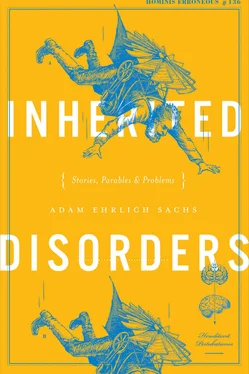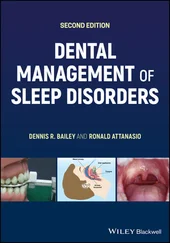Determined to honor his beloved father by completing his book, the son tried to think of a fitting final sentence. He put one down, but then erased it. It wasn’t right.
He wrote down another last line, but erased that one, too.
And then another.
And another.
All at once, the son felt the huge weight of his task. Not only did this last sentence have to follow logically from the second-to-last; not only did it have to conclude the final chapter and the entire book in a satisfying way; not only did it have to remain stylistically consistent with what came before; it also had to be worthy of his father’s prose, worthy of his principles, worthy of his intellect — worthy of his life .
Yes, this last line had to do justice to his father’s whole life and life’s work! To vindicate it! To redeem it!
He felt it hovering there just out of reach, a last line that would consummate his father’s book. The son groped after this perfect last line for a month. Then a year. Then ten years. Finally forty years had gone by without his having written a word and he, too, died of an aneurysm at his desk.
He was discovered by his son, who now read for the first time his grandfather’s manuscript. What his father had interpreted as the second-to-last line, he realized, was clearly intended to be the last line. Adding another would be redundant and ridiculous. The book was complete. But it was now outmoded, obsolete, even embarrassing, so to preserve his family’s good name he consigned it to the flames.
To this day, though, the grandson can still recall the powerful last line of his grandfather’s manuscript. The finality of it is apparently overwhelming .
…………………….
For twenty-two generations, the Auerbach family had oscillated extremely effectively between men of action and men of thought. The men of action set sail and set interest rates, moralized and legislated, built buildings and drew borders. Their sons, appalled by the frenetic, hypocritical, impermanent, and ultimately meaningless lives of their fathers, became men of thought, each eventually producing one monumental biography of his father and one obviously autobiographical novel about father-son relationships. Their sons, in turn, were appalled by their feeble, self-conscious fathers, etiolated and articulate, paralyzingly consistent in their thinking, nonsexual, sitting for fifty or sixty years in their studies with words on the tips of their tongues. They became men of action.
There had been eleven Auerbach buildings and eleven Auerbach biographies, eleven interest rate policies and eleven obviously autobiographical novels about fathers and sons. A system in equilibrium, regular as a pendulum.
But now, in the twenty-third generation, the whole thing has fallen out of kilter: a man of thought has reared, inexplicably, another man of thought. That spells the end. A family might be able to withstand two consecutive men of action, but two consecutive men of thought, meaning two consecutive novels on the same theme, both obviously autobiographical, as well as a biography about a biographer: no system can endure that much uninterrupted introspection.
…………………….
Only hours after the funeral, his very frugal sister had called to see if he wanted a “completely unopened” stick of deodorant she had found in their father’s bathroom, and knowing that she was not the sort of person for whom because it’s my dead dad’s would constitute a sufficient reason for turning down a perfectly usable stick of deodorant, still wearing, as she confirmed in response to his initial query, its plastic skullcap underneath its outer shell, he had regretfully explained that he used neither the father’s brand, Speed Stick, nor the father’s scent, Ultimate Sport.
As it happens, the completely unopened stick of deodorant did not go to waste: it was ultimately made use of by the sister’s pliable husband, the movie-quoting digital marketing manager, who, the son observed, soon started to smell just like his dead father, the marketing manager’s father-in-law.
Before long, the brother-in-law was also wearing the dead man’s “basically brand new” winter jacket and his “almost unworn” sneakers — both of which, the son had to admit, his sister had offered to him first, and which he had declined for good reasons, but which were nonetheless disturbing to see ornamenting this digital marketing professional and movie aficionado’s chest and feet.
Then, just as he was growing accustomed to his brother-in-law wearing his father’s deodorant, winter jacket, and sneakers, the son noticed that he’d begun wearing his dead father’s personality and philosophy. The son first observed this during a recent family dinner at Empire Szechuan, at which his brother-in-law not only smelled like his father under the armpits and looked like him around the chest and feet but also sounded like him out of the mouth. Evidently his sister had scrounged around not only in their father’s bathroom and closet, but also in his head. In his bathroom she’d found perfectly usable deodorant, in his closet she’d found perfectly usable jackets and shoes, and in his head she’d found perfectly usable traits, tastes, and ideas.
The son turned down the deodorant, jacket, and shoes, and long ago had politely declined the traits, tastes, and ideas, but the son-in-law was willing to wear whatever his wife threw at him. They had evidently stood beside the father’s head, the sister reaching in for this or that emotional tendency or political belief, her husband trying it on. If it fit, great, he took it! If it didn’t, no problem, back it went in the father’s head, and then with the head to the grave. Presumably the brother-in-law was under no obligation to like any of these traits, tastes, and ideas, but evidently he had liked a lot of them, or liked that his wife liked them, because he was wearing so many of them that evening at Empire Szechuan, in addition to the family deodorant (which, it should be said, was , in fact, the son’s brand, and had been ever since his father had purchased for him his early pubertal equipment many years before.)
The son waited till his brother-in-law went to the bathroom before accusing his thrifty sister of ransacking their father’s head for these “intellectual, psychological, and emotional hand-me-downs.” But she claimed not to know what he was talking about.
…………………….
A different son faced a similar quandary following his father’s death. It was easy enough to divide his father’s money and material things among him and his brothers. But what about his father’s mental things? His quirks, temper, and jokes? His optimism, nostalgia, sentimentality, and rigor? His binaries, concepts, and explanatory frameworks? His idea of what constituted worthwhile work? His areas of interest? His blind spots?
The son certainly didn’t want them. But he didn’t want his brothers to have them, either. And he didn’t want them just to disappear with their father. They were worth preserving, but he honestly did not have room for them in his head, and he didn’t think it was fair for his brothers to take them if he couldn’t (even though they said they would be happy to).
Finally the son looked into charities: Goodwill, the Salvation Army. But most of the major American charities, he discovered, accept only financial or material donations, not immaterial or conceptual ones. The Salvation Army accepts secondhand clothing or household items, but not secondhand ideas, theoretical approaches, or psychological attitudes. This actually prompted a screaming match with a Salvation Army officer who conceded that many of his father’s mental things — his commitment, his self-confidence, his faculties of concentration — might very well be more useful to a poor person than his material things, but still wouldn’t budge on the Salvation Army policy regarding tangibility.
Читать дальше












